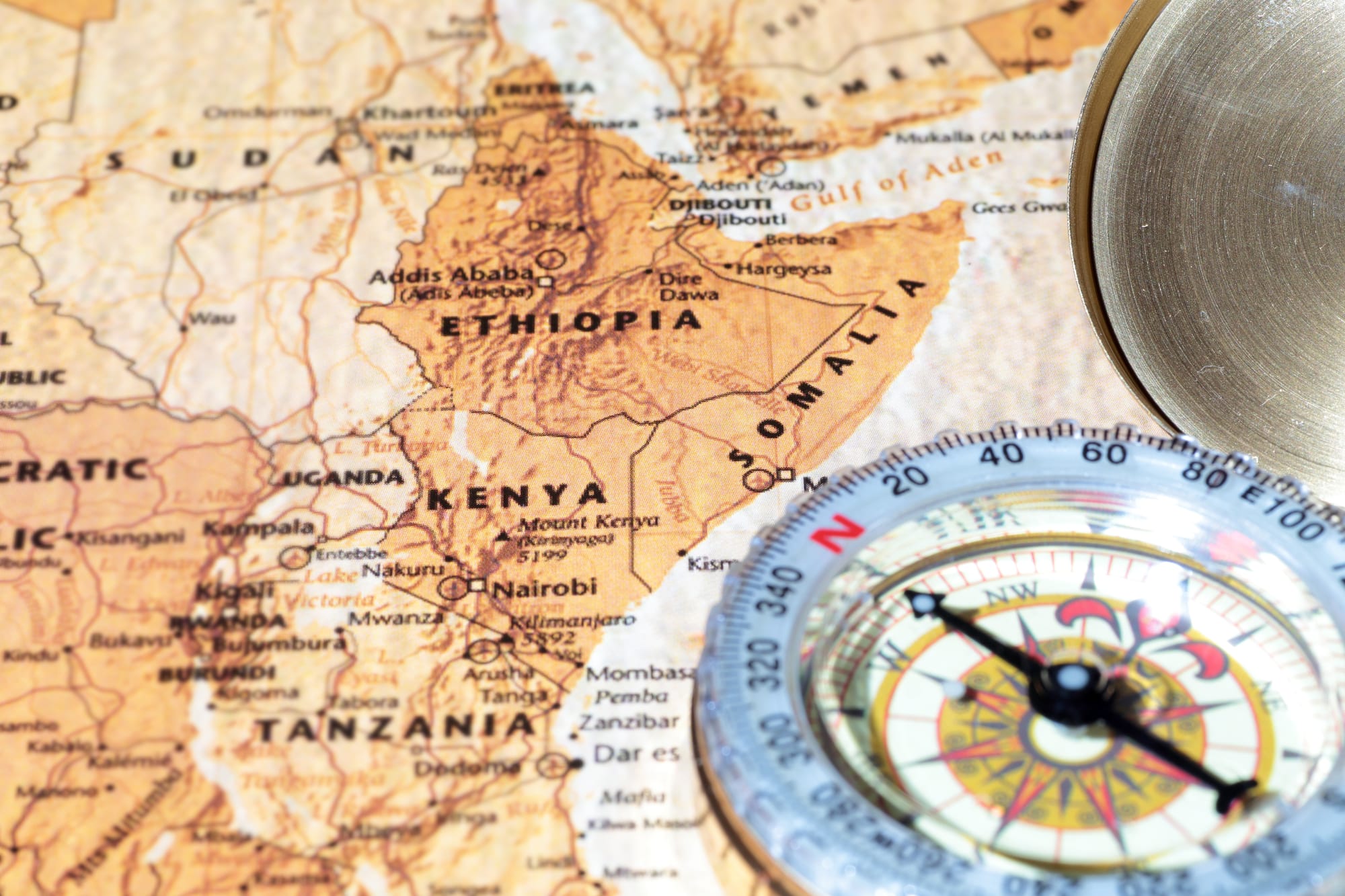Great Power Competition in the Horn of Africa

The Horn of Africa is one of the world’s most sensitive and strategic regions. It overlooks vital shipping lanes that connect Asia and Europe, shares a maritime border with the Middle East, and has thousands of miles of Indian Ocean coastline.
The region is also home to Africa’s second most populous country, Ethiopia; one of the continent’s most important ports, Djibouti; and Chinese, American, and other military bases. But the Horn’s deep political tensions and history of conflict make it difficult to engage in effective diplomacy.
Hudson Institute, in collaboration with the Israel-Africa Institute, is conducting a series of webinars analyzing this important region, especially the role that outside actors play.
In this episode, experts discuss what large powers such as the United States, China, and Russia are doing in the Horn, their strategies and motivations, and the impact they might have on the region.
Speakers:
Joshua Meservey, Senior Fellow, Hudson Institute
Ebnezer Obadare, Douglas Dillon Senior Fellow for Africa Studies, Council on Foreign Relations
Dr. Moshe Terdiman, Senior Research Fellow, Israel-Africa Relations Institute
Key Conclusions
- Political Instability: The persistent unrest in the Horn of Africa presents both challenges and opportunities for intervention, particularly from global powers looking to stabilize the region.
- Security Challenges: The dual threats of insurgency and terrorism necessitate a multifaceted approach from the U.S. and allies, blending military action with investment in long-term stability and governance.
- Geostrategic Interests: China’s investments and military base in Djibouti indicate a growing influence, while Russia’s recent naval agreements in Sudan reflect an expansion of its reach in the region.
- Recognition of Somaliland: The lack of international acknowledgment for Somaliland’s governance raises questions about the broader implications of state recognition in geopolitical alignments.
Key insights
- Political Instability: The Horn of Africa suffers from chronic political turbulence, requiring international attention and intervention to foster long-term stability. The interaction between various ethnic groups and the ineffectiveness of central governments exacerbate this instability, creating a breeding ground for extremism and conflict.
- Impact of Extremism: The rise and persistence of Islamic extremist groups like al-Shabaab pose substantial security challenges not only within Somalia but across the wider region. Their influence underscores the necessity for comprehensive strategies that involve both immediate military action and long-term socio-economic development.
- Geopolitical Importance: The Horn of Africa serves as a critical junction for international shipping routes, significantly affecting global trade. Consequently, this geographical advantage draws significant interest from global powers keen on establishing military and economic bases in the region.
- Russia’s Expanding Influence: Russia’s ambition to establish a naval base in Sudan and its strategic partnerships with countries like Ethiopia demonstrate a calculated effort to extend its military reach and influence in Africa, particularly as it navigates the consequences of its actions in Ukraine.
- China’s Economic Engagement: China’s investments in the Horn, including its military base in Djibouti and economic ties with Ethiopia, highlight its strategic focus on securing trade routes while expanding its influence in Africa, raising concerns for other nations, including the U.S.
- U.S. Policy Dilemma: The U.S. continues to grapple with its role in the Horn of Africa, balancing counterterrorism efforts with the need for diplomatic engagement aimed at fostering governance and stability. A lack of sustained commitment could cause regional powers to gravitate toward China and Russia.
- Governance as a Solution: The stability of nations in the Horn hinges on good governance practices. Improving leadership transparency and accountability can reduce the allure of extremist groups and encourage investment and stability, ultimately leading to a more prosperous region.
